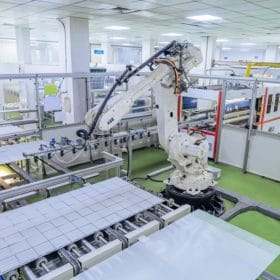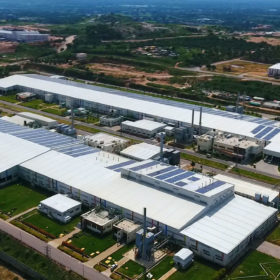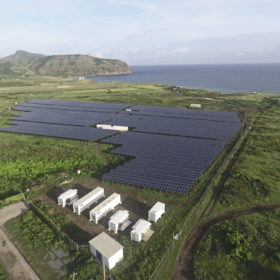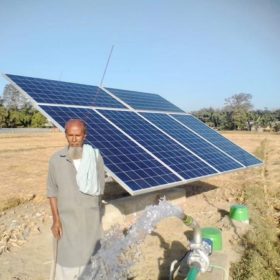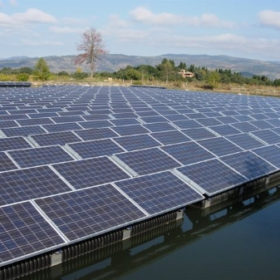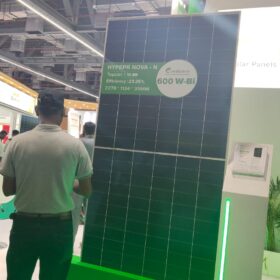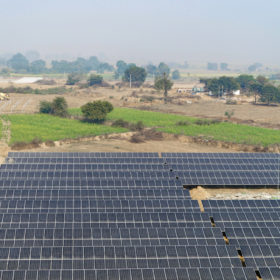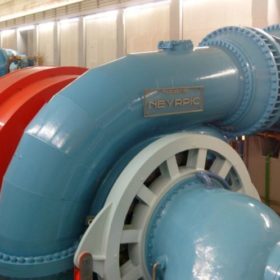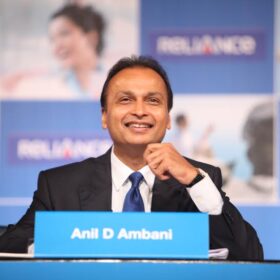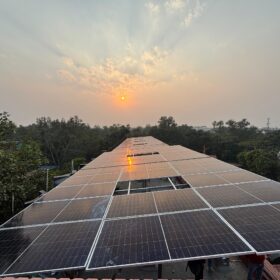SJVN ties up with NDMC for sale of 150 MW solar power
The state-owned hydropower producer plans to bid for 1 GW out of 5 GW grid-connected solar capacity tendered under the Central Public Sector Undertaking (CPSU) Scheme. In a pre-bid arrangement, it has tied up with NDMC for the sale of power from its solar projects at an INR 2.44/kWh (US$ 0.033/kWh) tariff for 25 years.
Goldi Solar to expand manufacturing capacity to 2.5 GW with new facility
The Indian solar panel manufacturer is setting up a 2 GW facility in Surat, increasing its total manufacturing capacity from 500 MW at present to 2.5 GW. The new facility will implement micro-gap module technology (MGMT), and produce high-efficiency mono-facial and bifacial modules with peak power output exceeding 500W and 600W, respectively.
Amara Raja Batteries to reposition itself as an energy and mobility player
The Indian lead-acid battery major would form a new strategic business unit for lithium cells and battery packs, electric vehicle (EV) chargers, energy storage systems, and other related products and services as it looks to reposition itself as an energy and mobility player.
Sterling and Wilson Solar appoints Amit Jain as Global CEO
Amit Jain has been instrumental in developing the US and Australia as key markets for the Company in his previous role as Country Head for US and Australia.
NTPC seeks expressions of interest for hydrogen fuel cell-electrolyzers
The state-run power company wants to explore the feasibility of using hydrogen instead of diesel for back-up power and micro-grid application.
Upscaling solar-powered irrigation in India
India’s solar-powered irrigation mission has had a sluggish run despite the PM-KUSUM scheme providing ample flexibility and budgetary support for the system implementation. An IEEFA report highlights the need to address the challenges of coordination, affordability, business models, technology and awareness creation at State level to increase the uptake.
Surge in solar panel and polysilicon prices may impact projects in India
Modules represent 45 to 55% of the project capex. In a very competitive market like India, independent power producers have lower margins, and even a modest increase in module prices will put more pressure on them.
Acme retracts decision to abandon 600 MW solar in Rajasthan
A fresh petition filed with the regulator Central Electricity Regulatory Commission (CERC) shows the clean energy developer is not seeking discharge from the 2×300 MW solar project won at an INR 2.44/kWh (US$ 0.033/kWh) tariff in 2018.
BHEL commissions 5.4 MWp floating solar plant in West Bengal
The floating solar plant is located in the Murshidabad district of West Bengal. It is built upon a raw water pond of the Sagardighi thermal power project owned by The West Bengal Power Development Corp. Ltd (WBPDCL).
Electricity derivatives will offer power offtake certainty for renewable investors
An Institute for Energy Economics and Financial Analysis (IEEFA) report says the sale of power in the futures market will benefit renewable energy developers and distribution companies alike.


